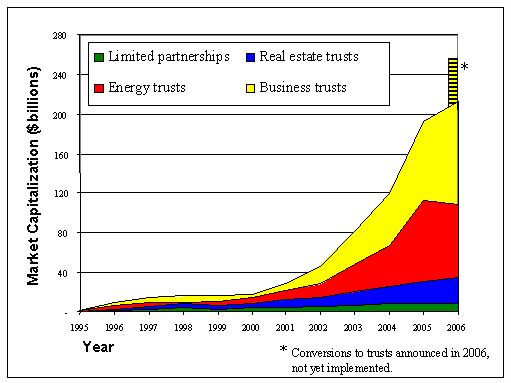Investing in oil and gas trusts has long been a popular choice for investors looking to diversify their portfolios and tap into the potential of the energy sector. These unique investment vehicles provide individuals with the opportunity to earn consistent income streams while benefiting from tax advantages.
In this article, we will delve into the world of oil and gas trusts, exploring their origins, how they work, and whether they are worth considering as an investment option.
How Oil and Gas Trusts Came to Be
In the 1980s, changes in federal tax laws allowed oil and gas companies to form publicly traded entities called trusts. These trusts enabled companies to pass on a significant portion of their income directly to shareholders, bypassing corporate taxes.
This new structure provided investors with access to profits from oil and gas operations while minimizing tax liabilities for the companies involved. As a result, oil and gas trusts became an attractive investment option, revolutionizing income distribution within the industry.
The Concept of Trust Units and Distributions
Investing in oil and gas trusts involves purchasing trust units that represent ownership stakes in assets like oil wells or natural gas reserves. Unlike traditional stocks, trust units provide direct exposure to revenue generated from production activities.
These units are bought and sold on stock exchanges, offering investors a share of the income generated through the sale of oil or natural gas. Regular distribution payments make these investments attractive for consistent income streams alongside potential capital appreciation.
However, it’s essential to carefully evaluate your financial goals and research before investing in oil and gas trusts.
Understanding the Benefits of Investing in Oil and Gas Trusts
Investing in oil and gas trusts offers several advantages. These trusts provide a potential for consistent income streams, making them appealing for those seeking passive income or looking to supplement retirement savings.
Additionally, they offer tax advantages, as a significant portion of trust income is passed through to investors without corporate taxes. Investing in trusts also provides diversification benefits, capital appreciation potential, and access to professional management expertise.
However, thorough research and consideration of risk tolerance are essential before investing in these trusts.
Weighing the risks associated with oil and gas trusts
Investing in oil and gas trusts can be rewarding, but it comes with risks. The price of oil and natural gas is highly volatile, influenced by supply-demand dynamics, geopolitical tensions, and global economic conditions. Fluctuations directly impact trust revenue and distributions for investors.
Economic factors also play a role. During downturns or recessions, energy demand decreases, leading to lower revenues. Regulatory changes or shifts towards renewable energy can affect long-term profitability.
Thorough research is crucial before investing in oil and gas trusts. Analyze historical data, monitor economic trends and regulatory developments, assess the financial stability of companies involved, and consider diversifying your portfolio to mitigate risk.
Researching the Track Record of a Trust
When evaluating oil and gas trusts, it’s crucial to research their track record. Analyzing historical performance helps assess their ability to generate consistent returns. Key financial metrics like revenue growth, distribution yield, and payout ratios provide insights into stability and potential success.
Evaluating management expertise and strategy is also essential, considering experience in the energy sector and successful asset management. Additionally, analyzing current market conditions ensures informed investment decisions. Thoroughly researching a trust’s track record helps align investment goals with proven success.
Analyzing Industry Trends and Forecasts
Staying updated on industry trends is crucial for informed investment decisions in the oil and gas sector. Reports from reputable sources like energy research firms or government agencies offer valuable insights into supply-demand dynamics, price projections, technological advancements, regulatory changes, and other factors impacting this market.
Understanding these trends helps investors anticipate shifts, navigate market volatility, and identify companies with a competitive edge. By analyzing industry reports, investors can make well-informed decisions that align with the dynamic landscape of the oil and gas industry.
Considering geopolitical factors impacting the market
Geopolitical tensions greatly influence oil prices, making it essential to monitor events like conflicts in major oil-producing regions and political developments affecting energy policies. These factors create volatility in energy markets, impacting the performance of oil and gas trusts.
Global supply chains can be disrupted, causing price fluctuations that affect investors and consumers worldwide. Changes in energy policies driven by political decisions also shape the sector.
Staying informed about geopolitical factors is crucial for evaluating investment opportunities and making informed decisions when considering oil and gas trusts.
A Brief Overview of Each Trust’s History, Performance, and Future Prospects
Trust A has a strong history of consistent distributions and efficient asset management. Its diversified portfolio of oil wells across multiple regions demonstrates resilience in various market conditions.
Trust B specializes in natural gas production and consistently delivers robust returns to investors. Strategic partnerships and a focus on technological advancements position it well for future growth opportunities.
Both trusts offer unique investment prospects within the energy sector, providing stability, expertise, and potential for long-term growth.
[lyte id=’mHolW0RfGQ0′]







